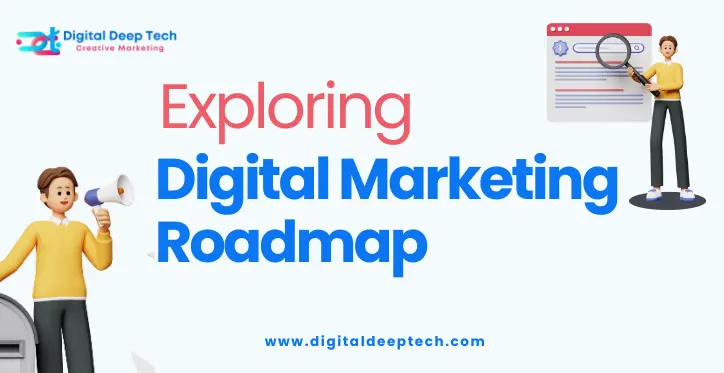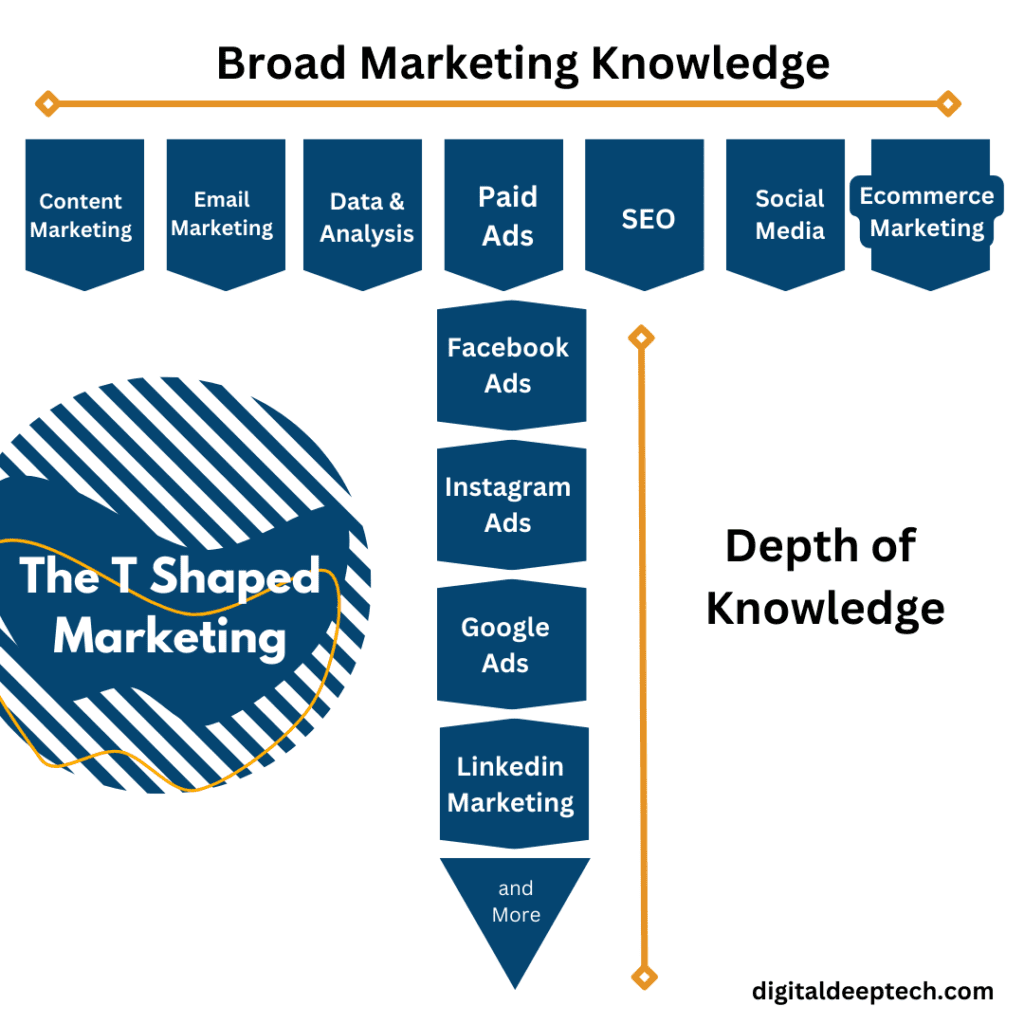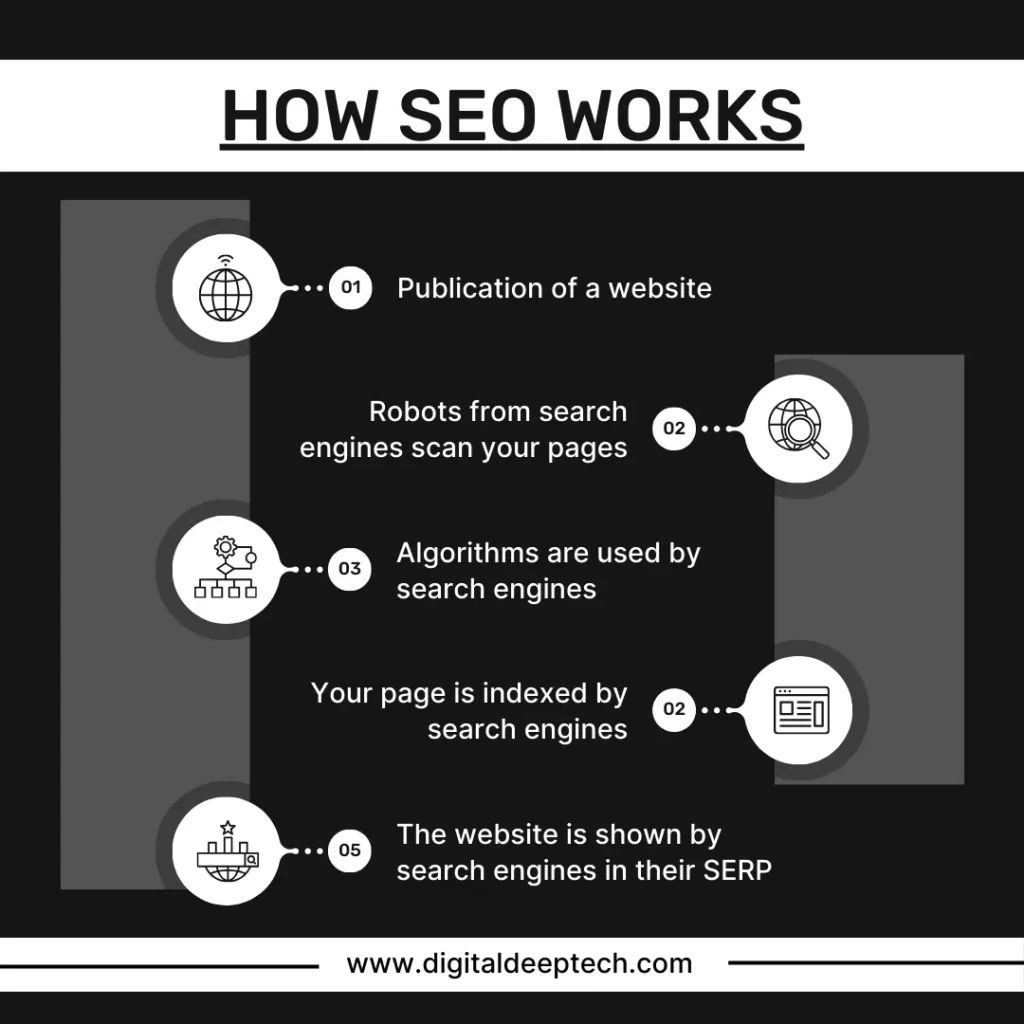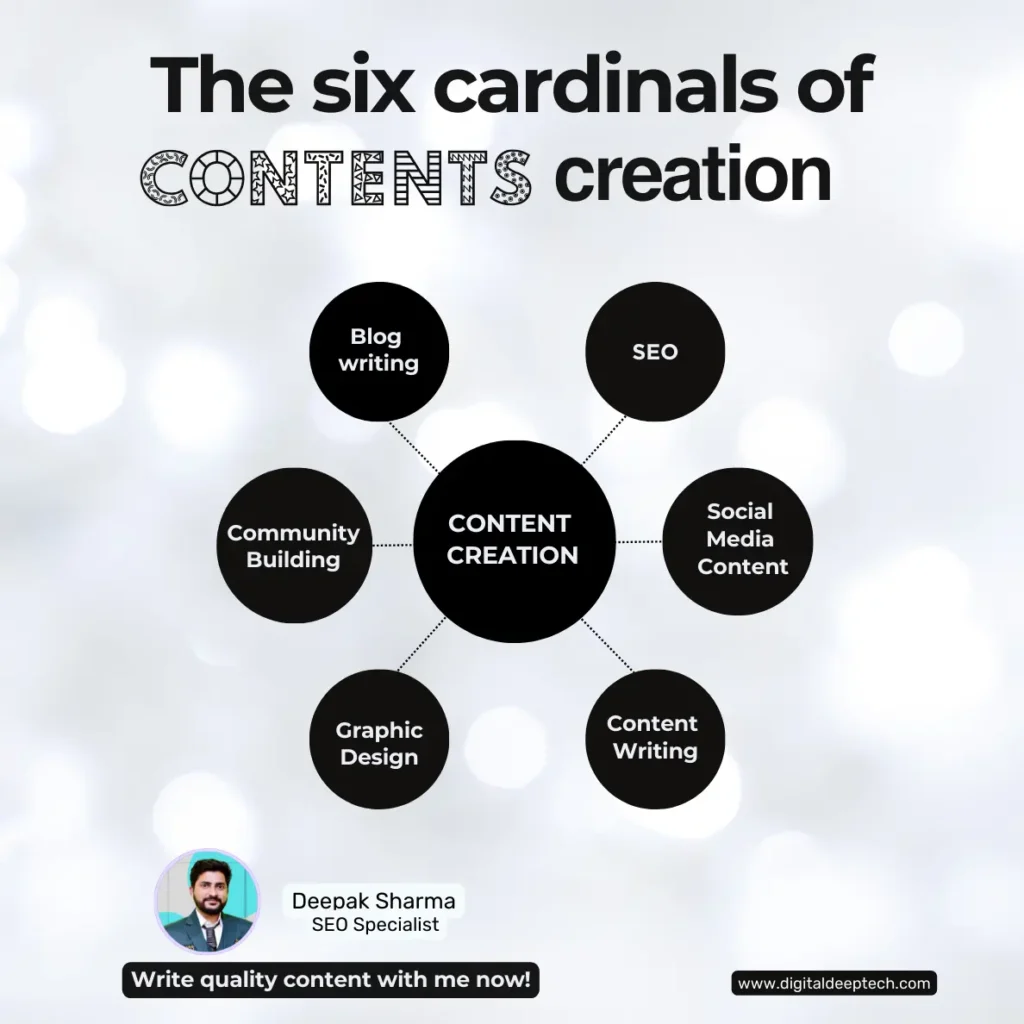Digital Marketing Roadmap for Starting Your Career

Table of the content
Digital marketing is an umbrella method of marketing services or products utilizing digital technology over the internet, social media, mobile, or search engines. Digital marketing, through a multitude of techniques and strategies, helps you reach an audience of your choice, enlarging the name of your brand and increasing traffic through generation; most importantly, it gets all these lead conversions into buyers. Having worked, on a personal note, as a digital marketer, I find that the roadmap of digital marketing has to be understood and navigated properly if success is to be achieved.
Learn about digital marketing?
The learning curve of digital marketing varies with your education, experience, and the selected depth of this field. It is continuously evolving as you keep yourself up-to-date with the constant news of training and development in evolving trends. The roadmap to learning digital marketing varies from person to person.
Some aspects, like email marketing, social media marketing, or content marketing, can even be learned to be relatively proficient in finishing online classes and practicing while taking them in a pretty short period of time. Some other areas, like SEO and PPC, do need to be clearly understood and experienced at work. Building a roadmap 2.0 digital marketing strategy can keep you in control and help you better locate resources.
There are so many ways that are utilized in achieving digital marketing and, further, many channels. An experienced digital marketer also knows which of these concepts to focus on in detail. The following is a digital marketing career roadmap.
Let's Discuss Your Project
Get a free one-month consultation and share your vision for digital marketing with us.
How Do You Become a Successful Digital Marketer?
For you to become a competent digital marketer, here is a combination of skills, knowledge, and savvy you need to go through. Major steps towards attaining your dream:
1. Learn Digital Marketing
Digital marketing is a lifelong learning process. ???? Learn the basics of SEO, Social Media Marketing, Email, and Content marketing. And study a few digital marketing success stories for inspiration on the most effective strategies. Use the Digital Marketing Learning Roadmap to help you track how far you have gone.
Make your business flourish and grow by engaging in the following activities: come up with your ideas on how you will carry out digital marketing for your business, create goals, and assess the effectiveness of the goals to achieve this in analytical ways. Engage in online classes, workshops, and webinars to acquire certification from the best and most reputable sources. Continuous learning is very important since it will always make one a valuable asset to any business. A roadmap for digital marketing is needed to stay on track.

2. Develop Your Skills
We need to understand many theories to be skilled in digital marketing and put them into realistic contexts. Begin by learning the basic principles of search engine optimization, social media marketing, email marketing, content marketing, and paid advertising. Learn the strategies of industry experts to understand effective techniques.
Create your digital marketing campaigns at a personal level; set goals; and use analytics tools to follow up on or review your campaigns. Take part in courses, webinars, and seminars to get the necessary certifications. Look for mentorship and apprenticeship programs for the practical adoption of these practices. Keep informed of the best trends in this direction, which will turn you into an indispensable expert. Do all these according to the ‘Digital Marketing Strategy Roadmap.’
3. Create a Solid Web Footprint
For sure, a good strategy in digital marketing goes hand in hand with a strong online presence. Carry out an aesthetically pleasing, user-friendly, and SEO-optimized website. Make sure your site is mobile-friendly with the proper usage of keywords, meta descriptions, and title tags. The roadmap for digital marketing principles that I have laid out on paper will guide you on this journey.
Engage with your followers and share valuable content across your social media handles. Always try to create and distribute valuable content regularly: blog posts, videos, infographics, podcasts—anything that helps your brand remain in a thought-leader position. Take advantage of paid promotional opportunities, such as Google Ads and Facebook Ads, to get more targeted leads. Develop and implement the practice of always professionally reacting to what is being said about your online reputation in both solicited and unsolicited reviews. These are just a few steps to build a strong online presence and attract customers to bring success to a business. Follow the roadmap to growth through structured digital marketing.
4. Practical Experience
The experience of a real project is often pivotal in the learning process. Start practicing your digital marketing skills by trying to freelance for friends, family, or local businesses to manage their digital marketing campaigns. Participate in online communities by sharing your ideas and learning from others.
Try to work within a digital marketing agency, at least in an internship-to-entry-level position, to benefit from the expertise of specialists. Volunteer your services to non-profits or small businesses—anyone looking for free help to build your scope and portfolio. Always keep your interests open to taking up diverse learning opportunities and staying up-to-date with this area of work. A roadmap can provide the following practical steps that are guided by the structure of a digital marketing agency.
5. Stay Current with Industry Trends
Staying updated with the trends in the industry is very important in digital marketing. Follow industry influencers and leaders on Twitter and LinkedIn to keep up with news and trends.
There are also opportunities to network with others and learn from experts by going to many conferences, workshops, and webinars. Industry journals or publications, such as Search Engine Journal and HubSpot, publish articles on new developments and best practices. Comment and learn from online forums like Reddit and Quora. Apply new techniques, tools, and tips to be at the forefront of the sector. A digital marketing roadmap for beginners would be of great help in following your learning process.
6. Measure Your Results
Tracking your progress goes a long way toward the fine-tuning of your digital marketing efforts. Clearly define what you want to achieve and the goals you have set before running your campaigns. Efficiency in the analysis of performance can similarly be undertaken with tools such as Google Analytics, social media analytics platforms, and email marketing platforms.
An analysis of data from website traffic, social media engagement, email open rates, click-through rates, and conversion rates can provide you with insights. Check and analyze the data frequently to look for patterns and trends. Always monitor how you do and tune your performances accordingly to do better and fulfill your goals more immediately. You can, with a strategic roadmap, measure and amend strategies in digital marketing.
What is T-shaped digital marketing?
The T-shaped digital marketer has wide skills in various fields of digital marketing and reflects deep expertise in one or two specific areas. In reality, this is what the concept of a “T-shape” reflects: the horizontal bar reflects wide skills, while the vertical one reflects deep expertise in some areas.

T-Shaped Digital Marketing Skills
As a T-shaped marketer, I have an in-depth knowledge of core areas that include SEO, social media marketing, email marketing, content marketing, and analytics. My professional specialization falls within SEO and PPC marketing, where I hold expertise in its techniques, best practices, and strategies. That, in my opinion, makes me fairly balanced on the road map of digital marketing.
The ability to easily understand a lot of techniques in digital marketing and how to create strategic solutions that live in harmony and collaborate well with other practitioners shows an understanding of being a T-shaped marketer. A deep understanding of SEO and PPC makes me very valuable to clients and an expert in these fields.
1. Understand Your Target Audience's Needs
Understand your audience’s wants, needs, and preferences. It’s the foundation of doing marketing the right way. I identify the right message and content for any target market by conducting market research, analyzing the readily available data of the customers, and developing the buyer personas. I thrive on such research and analysis done regularly, ensuring the marketing strategies are effective even when the audience changes. And that, in essence, is part of the digital marketing roadmap.
2. Developing a Unique Value Proposition (UVP)
UVPs are created by defining what makes a product or service unique and valuable to the target consumers. A powerful UVP sets a brand apart from the competition and clearly explains the benefits. My design process includes singling out key features and benefits, addressing the pain points of the audience, and then shaping that into a memorably worded UVP that can resonate with the identity and values of your brand. All of this makes it an important step in the roadmap to learning digital marketing.
3. Developing a Marketing Mix
The marketing mix is the development of a strategy that is all-inclusive and encompasses product, price, promotion, and place. It involves understanding what the market may want, setting up objectives, and coming up with a strategy that will be used to achieve customer satisfaction profitably. I consider product features, pricing strategies, promotional tactics, and distribution channels to help mold an integrated marketing plan for effective reach toward the target customer. This becomes an integral part of the digital marketing campaign’s roadmap.
4. Measuring and Analyzing Results
Monitoring nearly every marketing activity helps determine the efficacy of a particular strategy. Relying on metrics like website traffic, sales, and engagement rates to gauge campaign effectiveness will enable me to make informed decisions. This is part and parcel of the digital marketing analytics roadmap.
Who is a digital marketer?
In the digitally empowered century, everybody is trying to make their presence felt as an individual, let alone in the overcrowded and noisy online landscape. With innumerable platforms and ever-changing algorithms, the digital landscape has the potential to be overwhelming at best. The digital marketer is the key to making sure that businesses navigate this maze and come out thriving.
For example, imagine a business that creates a new product launch but fails to properly plan its digital marketing strategy. The likelihood of reaching the target market would be very minimal, and such a campaign would end up being a loss of opportunity and revenue. The most salient part is that such lucrative campaigns are supposed to be made by a professional digital marketer for optimal traffic and conversion results.
All these departments require a digital marketing strategy roadmap that charts out the steps and tactics to bring business goals to completion with digital marketing efforts. Here’s how you learn the whole of e-marketing with topics.
1. SEO (Search Engine Optimization)
This refers to the quest to learn how websites are manipulated to make them rank higher in search results. To learn SEO, I:
- Learn the basics by reading blogs, e-books, and courses.
- Experiment with SEO techniques with my website.
- Get mentorship from experienced SEO professionals.
- Keep pace with the trends and, simultaneously, the best practices.
By enhancing my skills further in Search Engine Optimization, the amount of traffic drawn towards businesses is going to increase, which remains a key denominator towards preparing a roadmap for digital marketing.

2. Social Media Marketing (SMM)
This entails using social media as a marketing tool. The sole purpose is to create more and more awareness and bring the audience into engagement. To understand how SMM works, I need to:
- A proper understanding of leading social networking sites such as Facebook, Twitter, Instagram, and LinkedIn.
- Learn from other effective campaigns and experts in the industry.
- Try managing social profiles; you need to develop content.
- Use tools to read analytics and adapt strategies to measure the success of a campaign.
Keeping abreast of everything in SMM allows me to employ social media effectively as an instrument to boost business performance from the perspective of getting closer to being a professional digital marketer.
3. Pay-Per-Click Marketing (PPC)
PPC marketing is the act of placing ads on search engines and with various sites that charge per click. How I would be learning to master PPC would include, among other things:
- Platforms: these involve Google Ads and Bing Ads.
- Running successful PPC campaigns
- Imitation
- Working out the creation and management of PPC campaigns
- Use PPC analytics tools to track the performance and optimization of strategies.
Insight into PPC trends keeps me current, so I can design ads that carry out business objectives, hence the advertising leg of the digital marketing roadmap.
4. Content Marketing
Content marketing is about providing valuable content that attracts and retains the audience. To study content marketing, I will:
- Have a good overall understanding of the basics:
- Audience targeting and goal setting.
- Best practices in content marketing.
- Tons of practice in various strategies of content
- Marketing and optimization for SEO.
- Use analytics tools to measure content effectiveness.
Continual learning and improvement in content marketing inform me to create engaging content that will drive business performance, which is essential to the digital marketing learning roadmap.

5. Affiliate Marketing
This is the process of marketing and getting a commission from other people’s products. To learn affiliate marketing, I
- Basics such as how commissions and payment processing work.
- Successful affiliate marketing strategies.
- Select niches and enroll in relevant affiliate programs.
- Develop content to market the affiliate products and monitor their performance.
Being on the trends guarantees that I, as an affiliate marketer, will be on par, which is a core ingredient in a digital marketing career blueprint.
6. Analytics and Measurement
Analytics and measurement are the only ways to see how well or badly marketing campaigns are performing. I will acquire this skill through:
- Analytics on key metrics and how to use tools like Google Analytics.
- Research winning campaigns and experts.
data analysis and visualization. - Attain the status of certified analytics from a verified source.
With this further development of analytical skills, I should be able to make stronger data-driven decisions that result in better business outcomes, an essential activity in building digital marketing roadmaps.
7. Email Marketing
Email marketing turns out to be the most effective way to nurture leads and drive conversions. A digital marketer structures a compelling series of email campaigns in small parts according to audience behavior and preferences. As per the statistics reported by Campaign Monitor, businesses experience up to a 760 percent increase using segmented email campaigns.
Good digital marketing is about data-driven decisions. A digital marketer observes the performance of campaigns and uses this data to gain insights that continually improve strategies. For instance, a case study by Kissmetrics found that data-driven marketing could increase ROI by 20 percent.
8. Customer Relationship Management (CRM)
It’s very important to maintain a good relationship with customers. A digital marketer uses CRM tools to manage and analyze interactions with customers, which results in better customer satisfaction and loyalty. As reported by Salesforce, businesses with CRM tools record up to a 29% increase in sales.
A digital marketer dwells on a wide scale that has different strategies and tools alike, all to ensure business prosperity. Whether it’s in search engine optimization or the creation of content that hooks and holds on, the work in digital marketing is what holds the hand of all businesses in this digital age.
This work promises an increase in traffic, higher engagement, and consequently, more revenue for the business. Simply put, digital marketing is no longer an option; it is a necessity that should be adopted by any business to excel in the modern world.
Conclusion
It caters to the continuous learning process and maintains the new developments within the digital marketing world. The interpretation of the basic principles and the experience of various aspects connected to digital marketing enable one to develop digital strategies that work and bring home business prosperity in connection with the target audience. Digital marketing roadmaps are important for the long-term nature of the industry.
FAQs
What is a digital marketing roadmap?
A digital marketing roadmap is a strategy that lays down the actions and objectives for implementing digital marketing strategies that will help achieve business goals.
How can a business benefit from a digital marketing roadmap?
A digital marketing roadmap will provide clarity and direction. This is where marketing will not stray from the goals of the business. By helping the business establish goals, it can then follow through to come first as to what matters most, where to allocate resources most effectively, and then how to measure the improvement of its performance.
What will be the contents of a digital marketing roadmap?
Basic concepts such as identification of the target audience, selection of digital channels, defining SMART measurable goals, and development of the planned content are core components of a digital marketing roadmap
What are essential components of a strategic roadmap for digital marketing?
A digital marketing roadmap will contain market research, analyze and define competitors, target personas, KPIs, marketing channel selection, the budget allocated, and finish with the campaign schedule.
How does a digital marketing agency create a roadmap for clients?
Digital marketing agencies make a roadmap for their clients, including the need assessment of the client, setting objectives for a campaign, creating a strategy for the objectives to achieve the client-based goals, setting a timeline with deliverables and their milestones, and setting up a campaigning schedule.
Does the roadmap 2.0 approach differ from traditional ways of practicing marketing?
Roadmap 2.0 digital marketing gives way much more to agility, iteration, and making decisions based on data than sticking to a laid-out path, allowing integrations from feedback loops, and at times, changes according to analytics that are in real-time.
How can I build a profession applying the roadmap to digital marketing?
A continuous career in digital marketing is successful by following a clear learning path, hands-on experience, updated industry trends, professional certifications, and networking.
What should be done to get an effective roadmap for a digital marketing strategy?
A digital marketing strategy roadmap must include SWOT analysis, target audience definitions, a unique value proposition, customer journey development, and omnichannel strategies.
. Why do businesses need to revise their digital marketing roadmap from time to time?
Businesses should change or develop their digital marketing roadmap with changes in the market, upcoming technologies, changes in consumer behavior, and competitive landscapes. It makes sure that the roadmap remains valid and drives maximum ROI.
. How can a small business use a roadmap to learn digital marketing?
A learning road map for digital marketing that small businesses might undertake, starting from scratch, through experimentation with low-cost digital channels, analyzing the performance metrics, and guidance in mentorship would help to intensify the efforts step by step with better results.